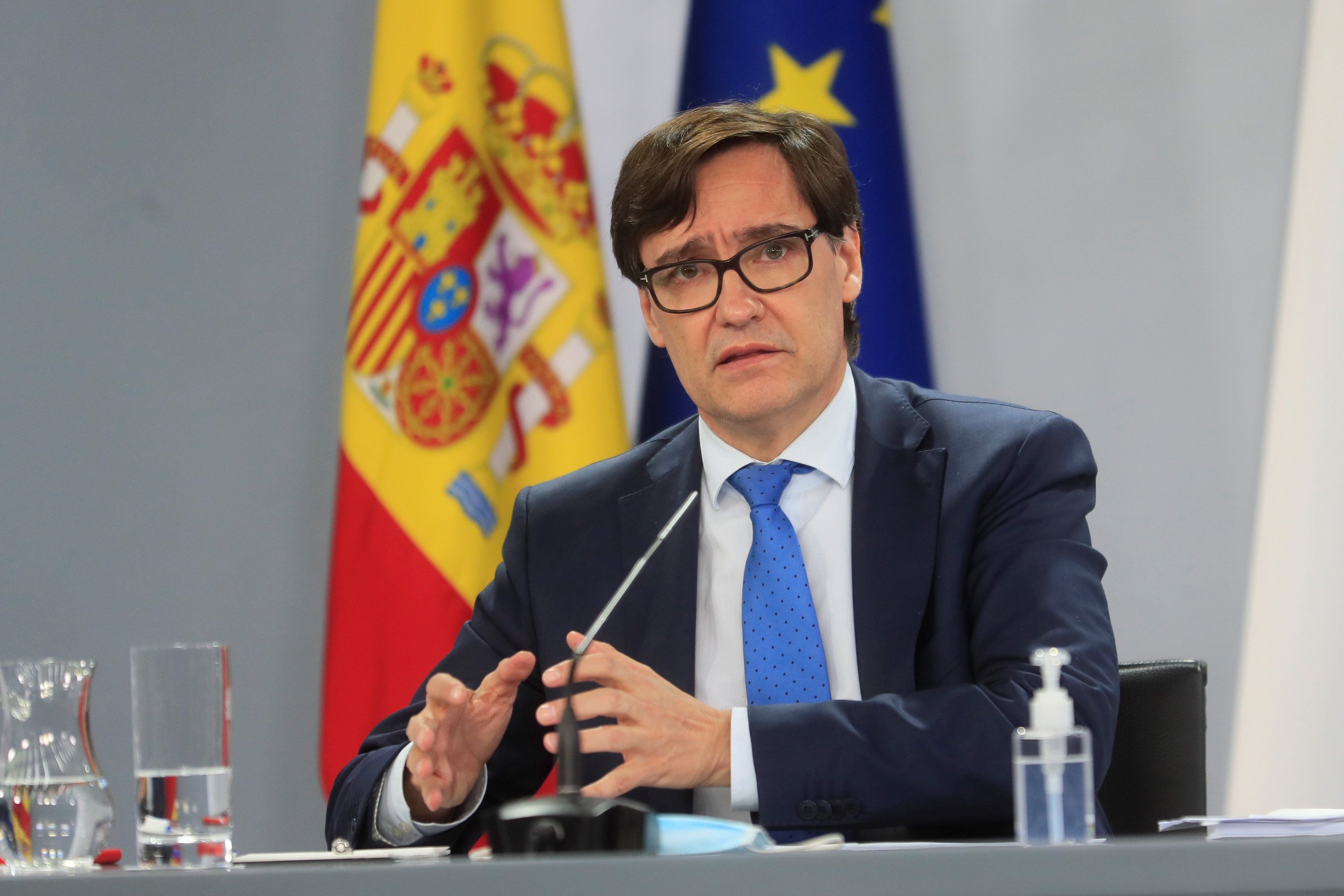Action-reaction. The Madrid regional government under Isabel Díaz Ayuso called on Tuesday for a general curfew, not only for the Community of Madrid, but for the whole of Spain. Hours later, after the Spanish executive's cabinet meeting, it was health minister Salvador Illa who stood before the media. The minister confirmed that the option exists: a curfew will be studied for Madrid and for other Spanish autonomous communities that request it, but he avoided talking about a general curfew. It could be "adopted throughout the territory or only in part." The next step is that it will be discussed at the interterritorial meeting of autonomous community health authorities this Thursday. However, he warned that, to have legal coverage, it would require another application of Spain's emergency status, the state of alarm - a status that has been in force in Madrid and is about to expire, without plans for an extension at present. “The second wave is no longer a threat; it is a reality all over Europe ", said Illa.
Surprisingly, the Community of Madrid no longer disapproves of measures to restrict mobility. Just as the French president Emmanuel Macron has done, the government of Díaz Ayuso is considering requesting the application of a curfew once its current state of alarm declaration runs out, this coming Saturday. Madrid regional health leader, Enrique Ruiz Escudero, let it be known today that he is open to the idea. However, like all political manoeuvres made in the Madrid regional government, it has some fine print and effects on the rest of the Spanish state: this decision would be taken by the Spanish government and would apply to "all of Spain". He justified the taking of the decision by the central Spanish government for the whole territory since the Community of Madrid does not have "legal coverage".
Thus, later on in the day, Salvador Illa announced that the door was open to this possibility, recalling that curfews are already being applied in some European countries, such as the large cities of France. However, he stressed that, in order to have legal coverage, it would involve the application of Spain's first-level emergency status, the state of alarm. "If we opt for this, I want to know which parties are willing to support it," he warned, addressing the PP in particular, after the party's changes of direction over the current Madrid restrictions. In any case, he has ruled out returning to the centralized "single command" used in the first months of the crisis, which took power away from the autonomous communities. It will be necessary to "discuss the scope of territorial application" if it goes ahead. He reiterated that the decision "is far from taken".
"We are facing weeks that will be very hard," the health minister warned at the start of the press conference. The figures for the Covid-19 second wave, he said, are "a confirmation that in all European countries, including Spain, the virus is present." Although there are differences between territories, he stressed that "the situation is worrying" and that "the virus does not travel by itself." In this sense, he once again called on the public "not to let down their guard" and for "legal restrictions" on mobility to be imposed by regions if necessary - since mobility levels are the main vector of spread.
The health chief said that his ministry is working "very intensely" with all the autonomous communities, and that all of them are taking "very significant" measures to try to flatten the curve of the second wave. In the case of Madrid, he indicated that the community is about to complete three weeks "under very strict measures" and that they have borne fruit. However, he said that a cumulative IA14 incidence of 400 remains very high.
31.5 million vaccines
Salvador Illa himself said that the state would receive up to 31.5 million doses of the AstraZeneca vaccine between December and June, although the last steps in the testing of the vaccine are still pending. The Spanish cabinet today authorized its acquisition. It costs 2.90 euros per dose, of which 1.12 euros will be paid by the European Union and 1.78 by member states. The health ministry could therefore end up spending between 56 and 76 million euros on it - with the uncertainty arising because the contract raises the possibility of a 20 per cent price increase. The vaccine requires a double dose, and would therefore reach just under 16 million Spaniards.

